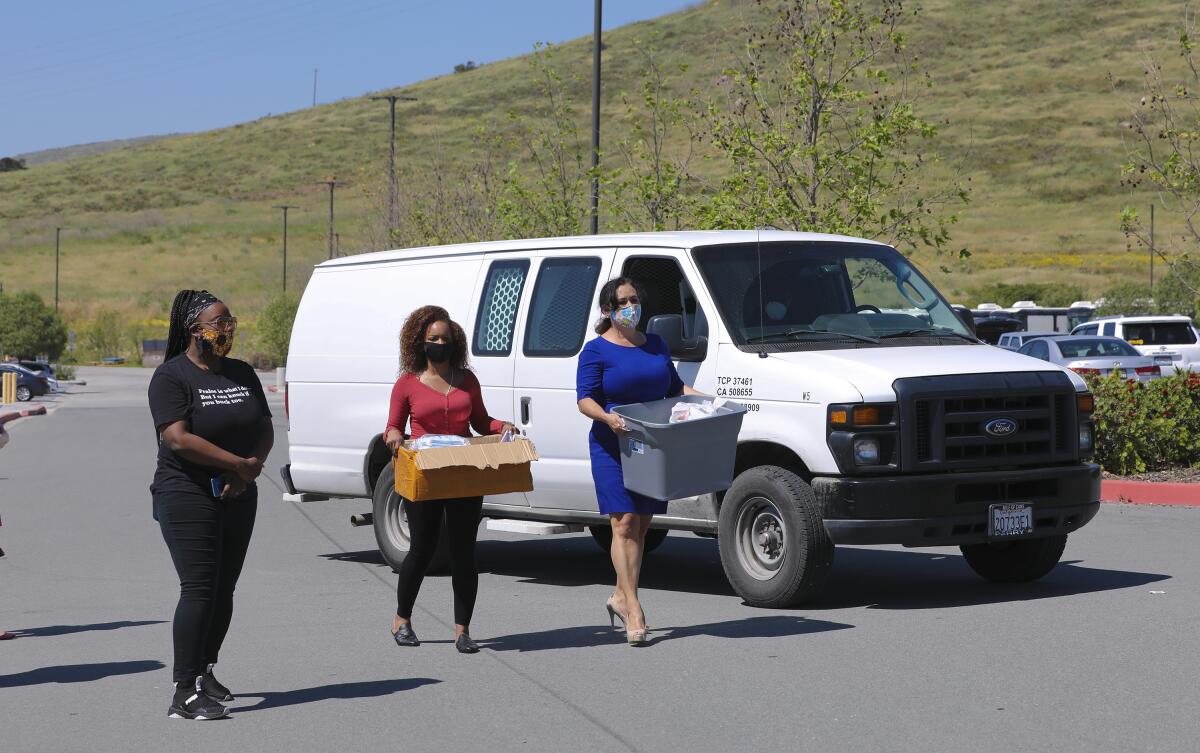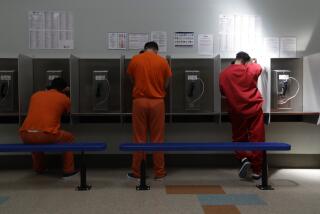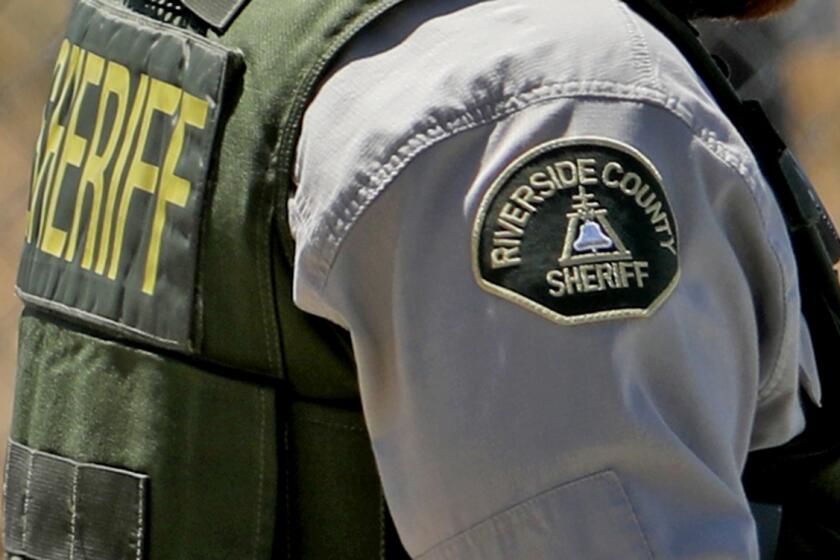Advocates with mask donation turned away from San Diego immigration detention center

- Share via
San Diego — Staff at Otay Mesa Detention Center did not allow Assemblywoman Lorena Gonzalez (D-San Diego) to donate masks to help protect detainees from the COVID-19 outbreak when she showed up at the facility’s gate Friday.
Gonzalez, whose district includes the detention center, joined with several immigrant rights organizations to give about 1,000 masks to detainees after they said they weren’t receiving adequate protection from the novel coronavirus.
“It’s rare that I feel so powerless to change something in my community and my district,” Gonzalez said.
“These are human beings,” she added. “We don’t have mass deaths, but we know where this is going.”
She said that if Otay Mesa weren’t a detention facility, society would be calling for it to close immediately over its handling of the virus’ spread within its walls.
Both Immigration and Customs Enforcement and CoreCivic, the private company that runs the facility, have said that they are following national guidelines to care for people at Otay Mesa. CoreCivic says it has responded rigorously and appropriately to the pandemic, including issuing masks to detainees and staff.
“All detainees at OMDC have the appropriate personal protective equipment for maintaining their safety while detained in ICE custody,” said agency spokeswoman Lauren Mack.
ICE said it was reviewing the mask offer and the “ability to accept and use these donated face coverings.”
“We are also currently reviewing the appropriate procedures to ensure any donated equipment provides the appropriate level of protection and adds to the safety, health and well-being of those in ICE custody,” Mack said.
CoreCivic also said the donations were being vetted by partner agencies and would abide by the decision they make.
Otay Mesa Detention Center has the highest number of cases among immigrant detainees in the nation, and the facility has helped push its ZIP Code to the highest count of cases in the county.
As of Friday evening, at least 111 people in custody had tested positive for the virus at Otay Mesa, according to facility documents obtained by the San Diego Union-Tribune. Of those, 67 are detainees in Immigration and Customs Enforcement custody, meaning that they are not being held for criminal reasons but instead are waiting for immigration court cases or to be deported. The other 44 are U.S. Marshals Service inmates who are in criminal custody.
According to the documents, 17 CoreCivic staffers and eight medical staffers had also tested positive for the virus. ICE’s website says that eight of its employees at the facility have tested positive. It’s not clear whether that includes any of the medical staff.
When Gonzalez and the relative of someone inside tried to carry the boxes of masks to Otay Mesa’s entrance, they were stopped by a guard in a van and sent back to the edge of the parking lot. Gonzalez tried to call the warden and his assistants, but the person who answered the phone wouldn’t connect her to them, she said.
Leaving the masks behind, Gonzalez went inside. About 10 minutes later, she walked back out. She hadn’t been allowed to speak to any of the building’s officials.
Gonzalez said she planned to keep trying to donate the masks.
Detainees and those who advocate for them have been complaining for weeks that the facility is not doing enough to protect them.
At first, they didn’t receive any protective gear. When the masks did arrive, , they came with contracts that many refused to sign. Later, the detainees were given masks anyway.
They are disposable surgical masks. Many say they’ve been wearing one for weeks with no replacement.
When asked about the issue, CoreCivic spokeswoman Amanda Gilchrist said: “New masks have been handed out.”
Detainees say they don’t have enough soap and that they don’t have enough space to keep at least six feet from one another, claims disputed by CoreCivic.
“This is ICE and CoreCivic’s responsibility, and they are failing,” said Mindy Pressman of Otay Mesa Detention Resistance, one of the groups that helped collect masks.
Soon after the advocates left, several sheriff deputies arrived. One parked a patrol car inside the gate to watch for any further activity.
Morrissey writes for the San Diego Union-Tribune.
More to Read
Sign up for Essential California
The most important California stories and recommendations in your inbox every morning.
You may occasionally receive promotional content from the Los Angeles Times.










